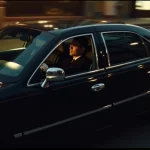UK Laws and Regulations for Campfires
Understanding campfire laws UK is crucial before lighting any outdoor fire. The UK has strict wild camping regulations and outdoor fire rules designed to protect natural habitats and prevent wildfires. These laws vary depending on location, especially within national parks, private land, and public spaces.
In national parks, campfires often require explicit permission from park authorities. On private land, you must obtain landowner consent. Public spaces like beaches or commons generally prohibit open fires due to safety and environmental concerns. Ignoring these rules can lead to fines or prosecution.
Also to read : Essential first aid kit items for unforgettable camping trips in the uk
Always check for local bylaws and temporary fire bans, especially during dry conditions. For precise information, local council websites or park authorities provide the most up-to-date campfire laws UK and wild camping regulations to ensure compliance and safety. Failure to comply not only risks legal consequences but also increases wildfire hazards, stressing the importance of responsible fire management within the UK’s regulatory framework.
UK Laws and Regulations for Campfires
Understanding campfire laws UK involves navigating multiple layers of legislation and local regulations designed to balance outdoor enjoyment with environmental protection. These rules stem from national legislation such as the Environmental Protection Act, alongside numerous local bylaws reflecting specific risks and conservation priorities.
Also read : What Are the Challenges Tourists Face When Camping in the UK?
Permissions vary significantly. In national parks, strict wild camping regulations often mandate formal approval before lighting outdoor fires, highlighting the delicate ecosystems affected. On private land, landowner consent is a legal requirement under outdoor fire rules, ensuring respect for property rights and safety. Public spaces typically prohibit open fires to minimise wildfire risk and protect public safety, reinforcing these areas as no-fire zones unless explicitly allowed.
Non-compliance can lead to legal consequences, including fines and prosecution. Importantly, these campfire laws UK also aim to prevent wildfires, a growing concern due to climate change. Staying informed must include checking updated local guidance, such as council announcements or national park advisories, especially during periods of heightened fire risk. This proactive approach helps ensure both legal adherence and environmental stewardship.
Choosing the Right Campfire Site
Selecting a safe campfire location is crucial to comply with campfire laws UK and honour wild camping regulations. First, assess the environment to prevent hazards and ecological damage. Avoid areas with dense vegetation or dry grass, as these increase wildfire risks. Maintain a significant distance from tents, typically at least three meters, and stay away from water sources to minimise pollution and disturbance.
Wind conditions affect fire safety and smoke direction. Choose a sheltered spot to control flames and reduce risk to surrounding nature and campers. Local outdoor fire rules often specify permitted fire areas, especially within protected parks or communal grounds. Always check for such guidelines before site selection.
Responsible campfire site selection also involves considering the landscape’s fragility. Use existing fire rings if available, or clear a bare mineral soil patch to avoid soil and root damage. Remove flammable debris from the perimeter to prevent accidental spread. This approach aligns with UK wild camping regulations prioritising environmental stewardship.
By adhering to these criteria, campers comply with campfire laws UK while enjoying a secure and respectful outdoor experience.
Sustainable Firewood and Materials
Choosing eco-friendly firewood is key under campfire laws UK and wild camping regulations to protect native ecosystems. The best practice involves sourcing UK local wood that is sustainably harvested and legally obtained, avoiding any wood from protected or diseased trees. This helps prevent the spread of pests and diseases, which are often introduced through imported firewood.
Using approved campfire materials means selecting dry, seasoned wood that burns efficiently with minimal smoke. Wet or green wood not only smokes excessively but can damage the local air quality and increase fire risk. Campers should avoid toxic or invasive materials like treated timber or synthetic products, as these release harmful chemicals when burned.
Alternatives such as manufactured firelogs and portable campfire kits offer convenience and reduce environmental footprint. These options often burn cleaner and comply with outdoor fire rules designed to minimise ecological harm.
Adhering to sustainable firewood choices supports both the letter and spirit of wild camping regulations and ensures a safer, more enjoyable experience while respecting the UK’s natural heritage.
UK Laws and Regulations for Campfires
Understanding campfire laws UK requires recognizing the layered legal framework governing outdoor fires. National legislation, such as the Environmental Protection Act, establishes baseline rules, but wild camping regulations and outdoor fire rules vary widely by location. For instance, lighting a fire in a national park typically demands explicit permission from authorities due to conservation priorities. Similarly, on private land, you must obtain landowner consent, aligning with outdoor fire rules that protect property rights and safety.
Public spaces usually prohibit campfires outright, reflecting efforts to mitigate wildfire risks and ensure public safety. Ignoring these laws risks penalties, including fines or prosecution. Given the variability across regions, consulting local bylaws is essential. Updated information is often available through council websites or park offices, especially when fire bans are enacted during dry spells.
Non-compliance compromises both legal standing and environmental protection, highlighting that adherence to campfire laws UK is vital for responsible outdoor activity. This legal mosaic aims to balance recreational enjoyment with ecological stewardship and public safety across the UK’s diverse landscapes.
UK Laws and Regulations for Campfires
Navigating campfire laws UK requires understanding both national legislation and specific local wild camping regulations and outdoor fire rules. The Environmental Protection Act serves as a foundational statute, but much depends on local jurisdiction. For example, national parks usually forbid campfires without explicit permission from park authorities, reflecting their goal to protect sensitive ecosystems.
On private land, the law mandates obtaining the landowner’s consent before lighting any fire. This is a key aspect of outdoor fire rules protecting property rights and reducing fire hazards. In contrast, public spaces typically ban open fires entirely to safeguard public safety and avoid wildfire risks, except where designated fire areas exist.
What happens if you don’t comply? Penalties include fines and potential prosecution, underscoring the legal seriousness of fire misuse. Since rules differ between areas, campers should always consult local bylaws, especially during dry weather when temporary fire bans often apply. Reliable information is available via local councils or park authorities, helping ensure adherence to campfire laws UK and promoting responsible, safe outdoor fires.
UK Laws and Regulations for Campfires
Understanding campfire laws UK involves multiple layers of legislation and specific wild camping regulations and outdoor fire rules tailored to protect the environment and public safety. The foundational legal framework includes the Environmental Protection Act, but regional variations apply based on land status and management priorities.
For instance, in national parks, lighting a campfire generally requires explicit permission from the managing authority, reflecting the vulnerability of protected ecosystems. On private land, the law mandates obtaining landowner consent before any fire is lit, ensuring respect for property and legal compliance. Meanwhile, public spaces usually prohibit open fires to reduce wildfire hazards and maintain public safety, except in designated areas where supervised fires may be permitted.
Non-compliance with these laws can lead to significant penalties, including fines and prosecution, underlining the seriousness of adhering to the campfire laws UK. Given the variability of rules between areas and changing conditions, especially during dry weather when fire bans often come into force, consulting local council websites or park authorities is essential. This ensures campers remain updated on applicable wild camping regulations and outdoor fire rules, promoting safe and lawful outdoor fire use across the UK.



